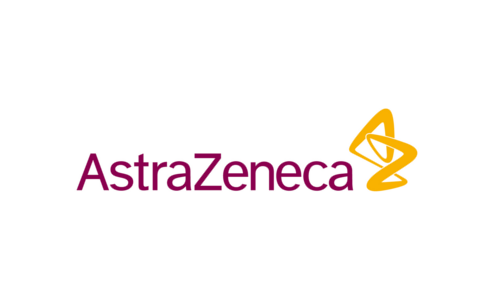- Executive Note
- Editorial note
- Interviews
- Digitalisation
- Events Coverage
Healthcare – on the brink of an AI revolution
AstraZeneca | Sep 30, 2023, 20:26

By Jarosław Agatowski, innovation & business excellence (IBEX) director, AstraZeneca Pharma Poland

Even ten years ago, artificial intelligence in pharmacy seemed to be a part of the fantasy or science-fiction movie scenario. The truth is that AI has become not only a reality but even a foundation in the multidimensional activity of innovative pharmaceutical companies. Poland also plays a vital role here.
A typical RX (prescription) drug development cycle takes 10-15 years and requires more than $2 billion investment to get one new medicine. Artificial intelligence with machine learning is now implementing disruptive changes in the pharmaceutical industry by using the power of algorithms to discover better treatment mechanisms, accelerate the drug discovery process, and reduce clinical trial costs (an essential part of the whole drug discovery process).
AI also plays a significant role in finding patients eligible for clinical trials, significantly shortening the work of clinicians in this area. Regarding clinical trials, Poland is an essential point on the map. Hubs are embedded, such as the ones in Warsaw or Kraków, employing several thousand employees. The use of AI algorithms supports the reduction of drug development time in this area. Without the help of AI, clinical trials take longer, and would require bigger teams to be involved throughout the whole journey.
Drug discovery is like a chess game. It involves hundreds of thousands of possible combinations of molecules. Searching for a suitable molecule using conventional methods would require many years of calculations. This has been a significant obstacle in the drug-discovery process. Deep neural networks and AI algorithms allow for a drastic acceleration of how new medicines are developed. Learning from small or large amounts of available data is vital in using machine learning for drug discovery. In addition, machine learning algorithms solve the problem of adverse drug reactions thanks to the ability of bioactivity predictions and possible responses. The entire industry of innovative pharmaceutical companies is developing such solutions.
One of the other ways pharmaceutical companies use AI to improve patient care is through AI-powered diagnostic tools. These tools can, for example, analyse medical images such as X-rays, CT (computed tomography) scans, and magnetic resonance to identify signs of disease or abnormalities in organs faster and more accurately than experts. Currently, such solutions are being reviewed and tested in Poland too.
People often ask if publicly available AI generators (such as Chat GPT) are an option in drug discovery or solutions research. In practice, they are perceived as a partially safe source of obtaining information and processing data. Pharmaceutical companies develop their solutions or make agreements with start-ups, bearing in mind the safety of the drug-testing process and data security. Issues related to intellectual property are also a significant matter in this area. However, this situation will soon change in the EU countries, thanks to European Union regulations. In June this year, the European Parliament adopted its negotiating position on the AI Act. Parliament’s priority is ensuring the EU’s AI systems are secure and transparent.
AI technology can also improve the process efficiency and productivity of commercial teams. Intelligent algorithms, including machine learning technologies and business intelligence platforms, help create automatic reports, inform about security threats, and generate conclusions based on available data. This allows employees of the commercial department of a pharmaceutical company to gain ongoing access to business insights and to answer questions related to the product’s performance on the market (e.g., vs. competition). Even today, in many companies, this work is carried out by teams of analysts. AI will soon do it faster, cheaper, and eliminating human error. It is happening now.
Artificial intelligence is beginning to play an increasingly important role in the tactics of reaching doctors. It is about using artificial intelligence in omni-channel campaigns that can increase the effectiveness of drug promotion by medical representatives.
Access to physicians in Poland is not regulated, but to win a few minutes with a healthcare professional, drawing their attention to the therapeutic abilities of a particular drug often requires more than a short visit during the working hours of a given specialist. In addition, it is challenging to set priorities and adapt messages to specific contexts, places, and times of the day and week for individual segments or doctors.
Medicines are becoming increasingly targeted, and the market for each drug is often getting smaller. Effective sequencing of communication and education addressed to healthcare professionals will be the key here. In this situation, CDP (Customer Data Platform) engines help process dozens of messages and, depending on the doctor’s behaviour or attitude toward therapy, direct the right digital message supporting the face-to-face visits of representatives. Using machine learning (ML) mechanisms, they run the message at the time of a given healthcare professional’s highest probability of opening their emails. The way doctors consume content is changing due to the progressing digitisation. For ML, the priority source of knowledge are healthcare professionals in terms of their potential (number of patients they serve and drug initiation probability), and their digital involvement. The machine then learns what influences doctors’ tendency to change their therapeutic behaviour (such as using a newer drug) based on specific actions initiated by the pharmaceutical company.
Soon this will become standard campaign practice among innovative pharmaceutical companies. By directing the actions of representatives more accurately, AI can guide the critical decisions required in sales and marketing. At the same time, AI can make it possible to reduce spending on large numbers of medical promotion representatives and marketing and sales campaigns by directing their activities more directly, as well as by initiating automated digital activities.
AI also plays a role in Operations & HR. Currently, bots are often used to scan profiles of potential employees looking for predefined keywords in their CVs published on job portals or social media. The best match is an opportunity to acquire the best employees without involving external human resources companies or internal employees in a time-consuming research process.
Summing up, artificial intelligence is starting to disseminate through all the innovations mentioned above. Before long, it will become an integral part of both core and support processes in innovative pharmaceutical companies. In the coming years, we will observe how artificial intelligence will revolutionise the drug market, bringing us closer to an utterly effective drug for cancer or AIDS. We will soon find out how quickly we can avoid incurable diseases thanks to an effective and safe medicine with the indisputable role of artificial intelligence. No doubts!







